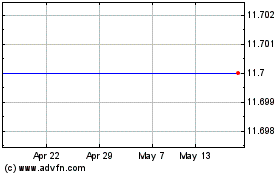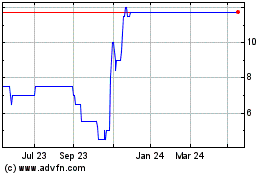Save Group PLC - Chairman's AGM Statement
June 02 1999 - 7:05AM
UK Regulatory
RNS No 1742a
SAVE GROUP PLC
2 June 1999
Contacts: James Frost
Save Group 01296 436661
Charles Ryland
Buchanan Communications 0171 466 5000
SAVE GROUP PLC
Chairman's AGM Statement
The oil industry, in which Save operates, has continued
to change substantially since crude oil prices started to
collapse in 1998. These changes are important background
to our business in the UK and to the recent improvements
in Save's results and prospects.
Internationally, the changes are the major oil companies'
mergers and planned mergers - Exxon and Mobil, BP and
Amoco and Arco, Total and Fina and Repsol with the
Argentine national oil company. Press reports suggest
that Texaco and Chevron may be added to the list.
Nationally, to Save's benefit, we have the after effects
of Esso's Price Watch campaign as well as the
international changes.
As I have reported before, Price Watch helped to reduce
the total number of petrol stations in the UK from 17,000
in 1995 to just 13,000 now, mostly from the closure of
marginal private dealer sites. In addition, some of the
better dealer sites have also been acquired by the
majors. As a result, the remaining 7,000 dealer sites
(that is some 50% of all sites) only sell around 10% of
all road fuel volume. This market is, therefore, all but
dead and, more importantly, will not provide the
historical outlet for the majors excess refinery
production.
The integrated oil companies have refineries. Their
production can be sold to their own sites (producing an
extra margin), sold to dealers (at a more modest margin)
or on the spot market (or to purchasers such as the
supermarkets and Save which deal on the spot market). As
the dealer category continues its decline, the ability to
sell through their own sites become the only way to
increase profit from these refineries. So, which oil
companies do I believe refine significantly more product
in the UK than they sell through their own sites and
therefore have to sell increasing volumes to the spot
market? All, except Esso.
Save, with its 400 sites, (8% of all company owned sites)
with no ties and no associated refinery is in a unique
position.
In UK petrol retailing, market conditions have continued
with the progress which had recently been made at the
time of my statement in March.
By way of recap, Esso's 2 pence per litre voucher
promotion (I believe the last intensive leg of Price
Watch) brought prices and margins down for 3 months and
ended in January. This should have signalled price rises
and margin restoration. Unfortunately Tesco and Asda
drew other players in to their private battle, causing
gross profit margins for the industry to be virtually
eliminated and Save to price up again to protect its
margins at the expense of volume. As I reported in my
statement, Save's first quarter was, therefore, barely
profitable. By the end of March, however, price rises
started to restore the whole industry's margins and Save
was able to commence becoming more competitive again and
to earn a more satisfactory gross margin.
I hope and believe that, with that quarter over, the
industry has learnt that seeking to take an advantage in
the market will provoke disproportionate retaliation and
that customers will also realise that they will start
paying for the cheap petrol they have enjoyed for the
last three years.
I believe that a number of factors have arisen which
could benefit the industry as a whole and Save in
particular:-
- The significant price and margin rises which started
in mid March and have generally stuck.
- The supermarkets' main business (but specifically
not their petrol businesses) have been referred by
the OFT.
- An earlier OFT report should result in the
supermarkets' petrol retailing costs (in the form of
business rates) rising by around 1p per litre next year.
- The OFT is expressing concern over possible excess
non petrol profits of motorway service areas.
- Crude oil prices appear to be slipping back as the
OPEC agreed production cutbacks are being increasingly
undermined; this not only increases downstream margins
but adds to pressure on the oil companies' upstream
profitability.
Save's trading volumes in the year to date are ahead of
1997 although, as a result of the first quarter's pricing
up, about 5% behind 1998. I am, however, pleased to
report that the latest week's sales this year are in line
with the increased equivalent sales in 1998 and, in a
stable market, I anticipate this progress, and the
resultant cash generation, continuing.
I have said that we made no profits in the first quarter.
The second quarter is, however, producing profits at a
growing rate despite the periodic stock losses (from
falling crude prices) which only translate into margin
gains in subsequent weeks (if prices remain unchanged).
I currently anticipate that the profits for the first
half will be between #1m and #2m. The Board is keen to
re-establish a dividend programme and will review the
position with the half year results in the light of
trading conditions.
In summary, after the already reported poor opening
quarter, I am encouraged by both margins and the trend in
volumes in the second quarter so far. The outlook for
the industry's future is also better than for some years.
R. James Frost, Chairman 2 June 1999
END
CAGUBUPUQBGBGUP
Starvest (LSE:SVE)
Historical Stock Chart
From Jun 2024 to Jul 2024

Starvest (LSE:SVE)
Historical Stock Chart
From Jul 2023 to Jul 2024
